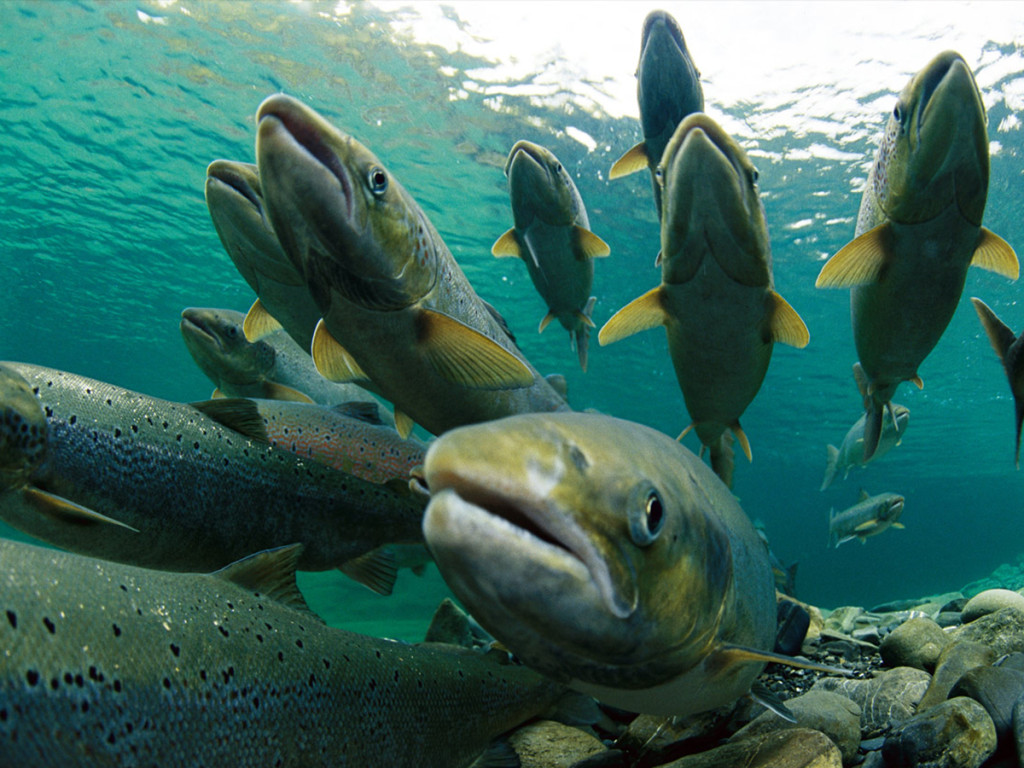
A biotech firm named AquaBounty technologies has recently revealed the AquAdvantage salmon, an Atlantic salmon genetically modified to grow larger and quicker than its free-swimming counterparts. This is the first case of an edible genetically modified organism (GMO) that isn’t a fruit or vegetable, and people have voiced concerns over its possible impact on our bodies and the environment.
Understandably, the phrase “genetically modified” can come across as a bit ominous. Whenever I think of genetic modification I’m reminded of Dr. Curt Connors from “Spider-Man” or Bruce Banner from “The Hulk”: green, grossly mutated and full of rage. Granted, my tendency to jump to the worst possible scenarios is because of my childhood consumption of superhero cartoons, but altering the original structure of something still seems like a dangerous game to play, especially since we are fallible little humans.
Science is awesome. It’s through scientific breakthroughs that we have medicine and treatments that have extended our life expectancy. Evidently, it has even changed the way we eat — the majority of the fruits and vegetables we eat are genetically modified, as well as the feed for pigs and cows. These modifications are applied in order to increase crop yields and maximize food production, resulting in an abundance of food and multiple options for the average American consumer.
However, the topic of GMO labeling has been hotly debated in recent years; some people don’t want to ingest anything that has been tampered with in a lab. While I understand the concern for wanting to keep one’s diet “au natural,” I find some people’s wariness of genetically modified food a bit hypocritical when a lot of mainstream food items already defy nature. For example, an unassuming cookie sandwich like an Oreo has over 10 ingredients (and no cream despite its creamy filling), which I think is a bit more disconcerting.
The bone I have to pick doesn’t have to do with personal health, but rather societal issues. Despite the abundance of food that we have, we still have a demand for more. Most of the motivation for genetically modified food is superficial. We think brown apples are gross so we grow one that never browns. The leftover salmon from overfishing is too small and grows too slowly for our consumption — let’s make a variety that grows bigger and in a shorter amount of time. Brown apples never posed a threat to our health and is merely a cosmetic concern. Though the salmon currently being sold on the market are smaller than the AquAdvantage salmon, we’re not being deprived of food. If anything, these normal-sized salmon are probably kinder to our waistlines.
Yet, despite our seemingly insatiable appetite for food, we waste 33 million tons of it every year. The availability of food has made us blind to the fact that some people around the world are not as fortunate to have such an abundance of it. Instead of being grateful about the options we have, we’re still picky about them (I should know, I’m vegan). We’re so privileged we are able to scrutinize and criticize a source of sustenance.
People are so critical of genetically modified food that the market for them is dwindling. There’s a chance that supermarkets wont even stock the AquAdvantage salmon out of fear of driving away customers. That’s a waste of the money and effort invested in producing this fish. That money, brainpower and scientific innovation could’ve been applied elsewhere and probably solved more pressing issues such as finding cures or developing treatments for fatal diseases. Instead, we have fat salmon while others around the world are starving.
So perhaps we’re not the right market for genetic modification. Instead of catering to a society of people who have already had their fill of food, perhaps companies like AquaBounty should focus their efforts to maximize food production in struggling nations — because apparently we can’t bring ourselves to appreciate the fruits of their labor.








